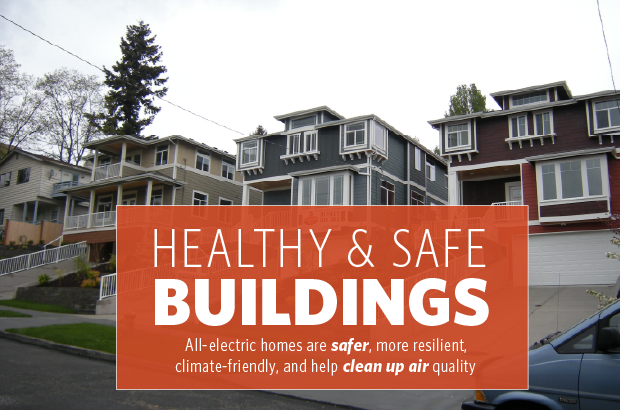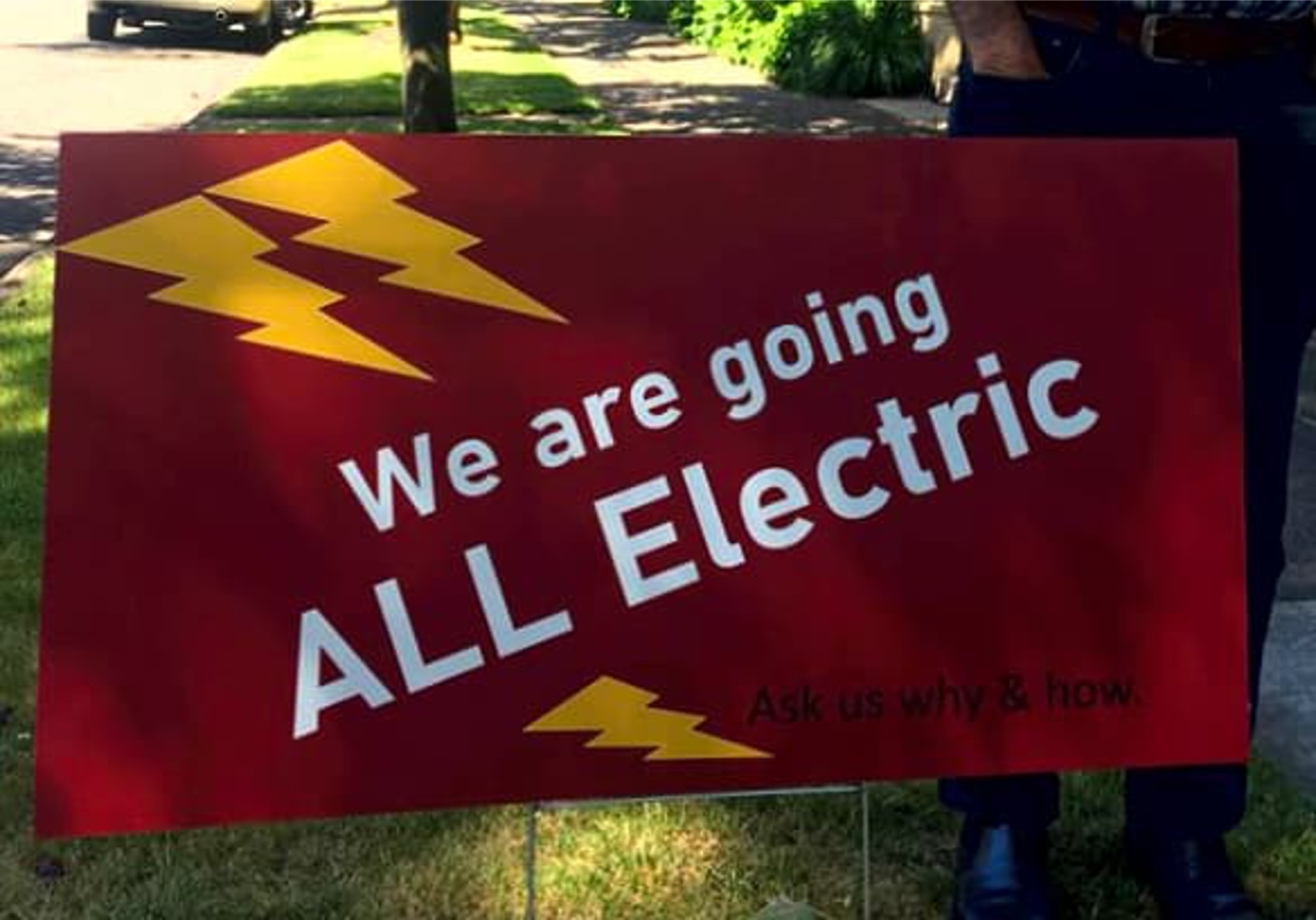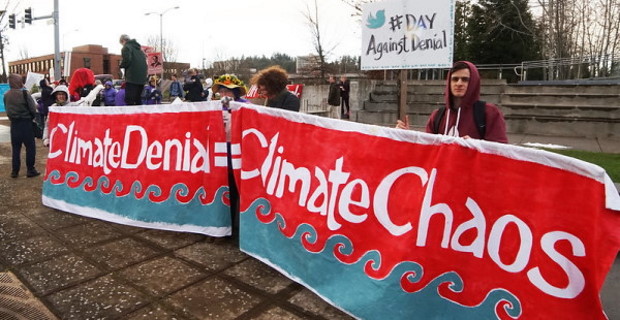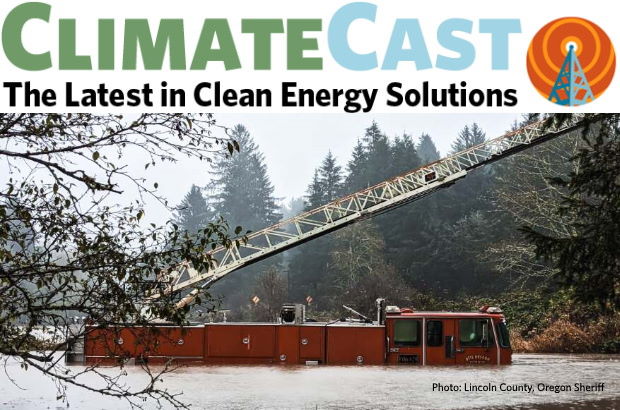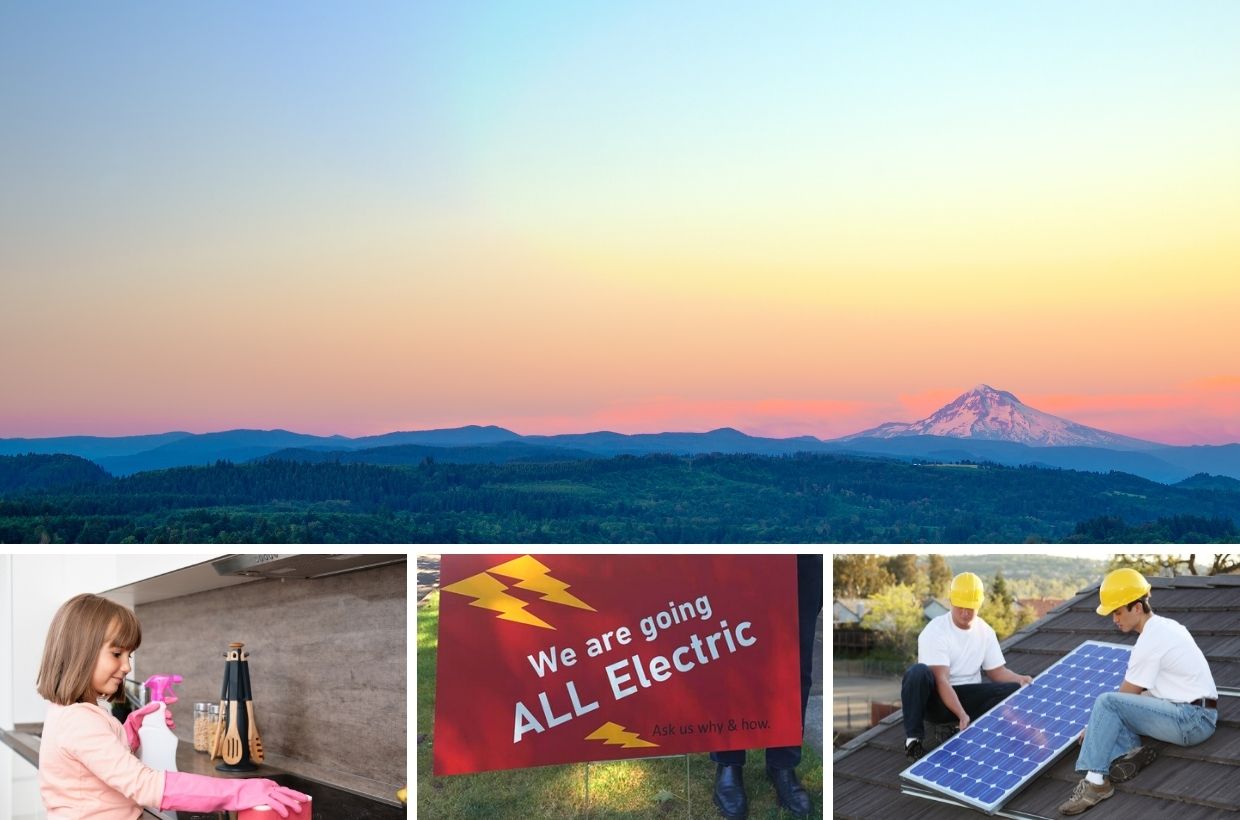
Heating and powering our homes and businesses generates a lot of our climate-changing pollution; our built environment is a major contributor to global warming. If our homes and buildings were carbon-free and energy efficient, we would significantly reduce our climate pollution, drastically cut energy costs for owners and renters, and improve air quality where we live and work.
For example, in both Oregon and Washington State, climate-worsening pollution from buildings are growing at a faster rate than any other source, with this increase largely attributable to the use of fossil gas in homes and buildings. Burning fossil gas in homes and buildings is not only a significant contributor to climate change, but also poses significant health risks for our communities, children, and other vulnerable populations.
Indoor air quality issues are particularly concentrated for low-income residents in smaller units with poor ventilation. Communities of color are already disproportionately impacted by outdoor air pollution, and should not continue to be disproportionately harmed by poor indoor air quality as well. Gas appliances also worsen our outdoor air quality. For example, California’s residential appliances releasing more than two times as many NOx emissions as all of their gas power plants combined, and commercial gas appliances releasing just as much NOx pollution as all of California’s cars.
States and many cities in the region and around the country are increasingly looking at ensuring all new buildings are electric as a key cost-effective pathway for achieving their local or state greenhouse emissions goals. Electrifying buildings is critical to addressing climate change, but it is also achievable, affordable, safe, and creates a more resilient energy system.
We are working with lawmakers and community partners to move rapidly toward electrifying our buildings for heating, cooling and cooking. We can also construct homes and buildings that get all their energy from sustainable sources, and even produce as much energy as they use — net zero energy buildings.

Sweating in the heat? All-electric buildings provide a cool solution
With fossil fuels as the energy source for our buildings, we’re only going to see more unprecedented heat waves. We need to reduce our emissions and protect our communities. That’s where the movement towards clean, safe, all-electric buildings comes in.
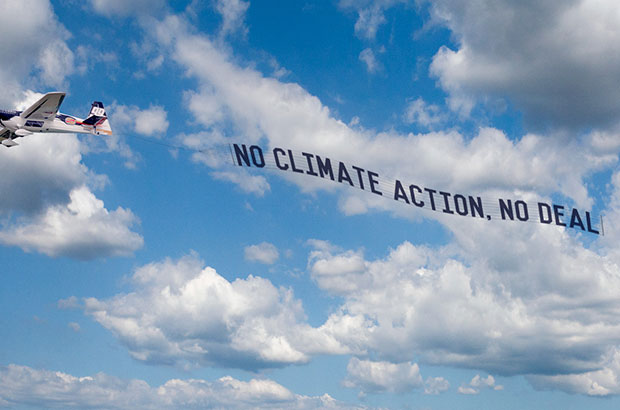
Tell Congress: no climate action, no deal on infrastructure
The American Jobs Act could provide the biggest-ever US investment in clean energy and equitable climate progress. But the fossil fuel industry is lobbying hard to make sure that doesn't happen. Let's stand up now for climate action!
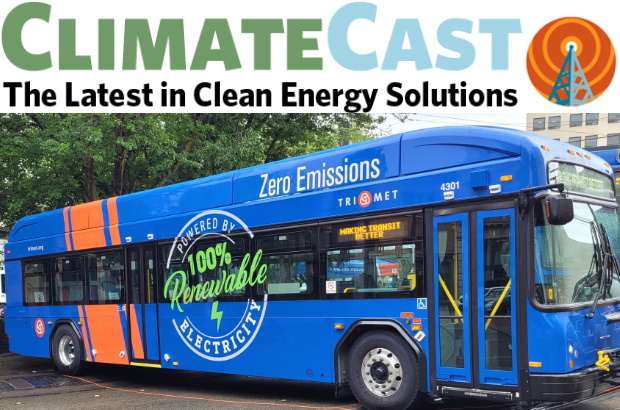
Keystone XL is kaput
TriMet doubles down on clean electricity, Keystone XL pipeline is cancelled, and carmakers up the ante on EVs.

It's the 11th hour for climate action in Salem
23 days. That’s how much time is left in the legislative session in Salem.

2021 Washington climate wins are real
Our hard-won, 2021 legislative wins on climate are motivated by the idea that tackling the climate crisis can help us create good jobs, it must advance the cause of racial justice, and it must begin to redress past harms and prevent future ones.

Washington State officially enters a new phase of climate action
Washington State enters a new climate action phase, Oregon's EV incentives get a boost, and fossil fuels are declared incompatible with a healthy future.
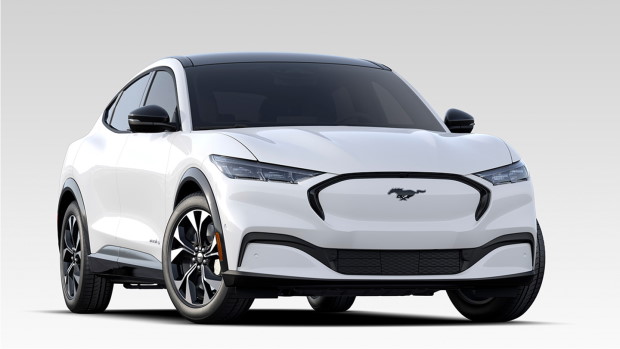
Help us get Oregon's latest push for EVs across the finish line!
We need your help now to get these important bills across the finish line this session and get more EVs on our roads. But the work won’t stop there.
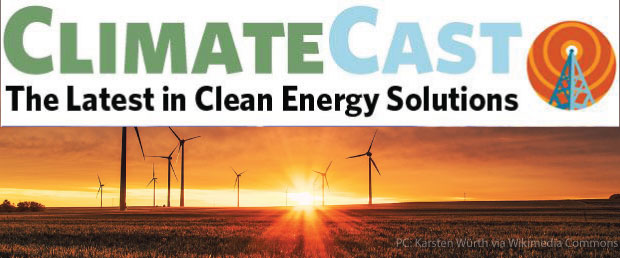
Dare to dream of climate optimism
Washington State doubles down on climate action, red meat lies, and building electrification on the rise
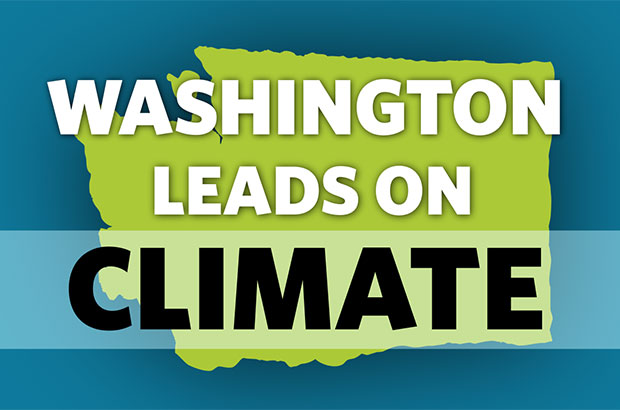
Can you believe it? Believe it: climate progress
Washington State just made history with a suite of legislative actions to address global warming pollution, the long-term need to protect communities most impacted by pollution, and our transition to a clean energy economy.

Let’s get going on clean and safe buildings for Tacoma!
On April 20th Tacoma set a path forward for clean and safe buildings in their city.



